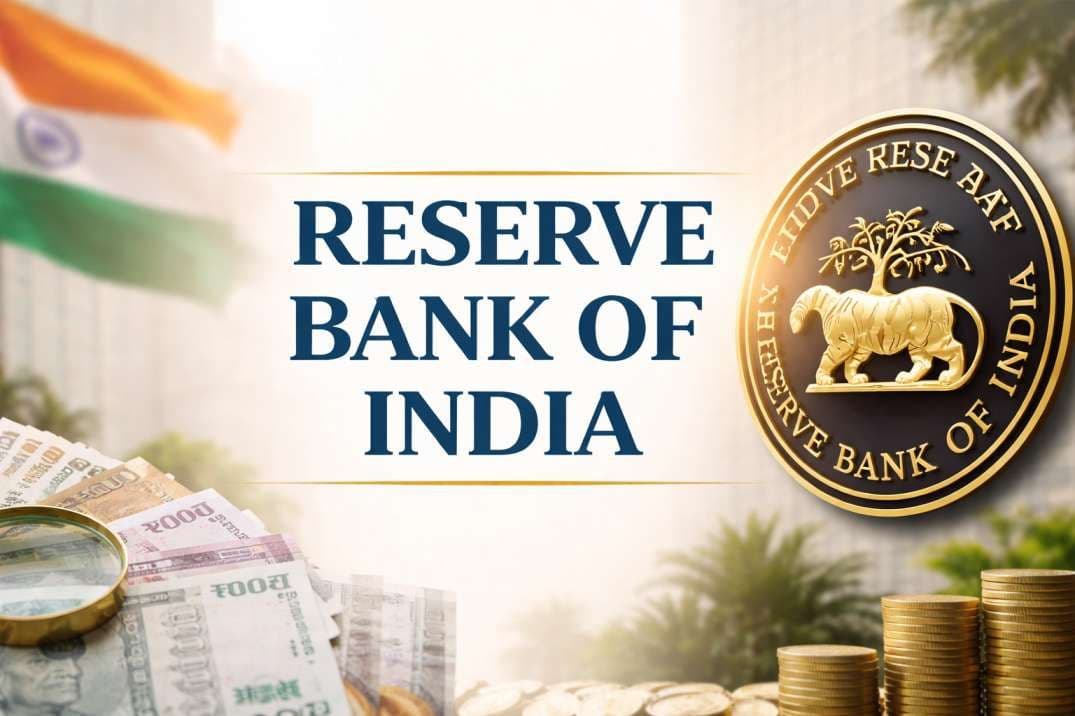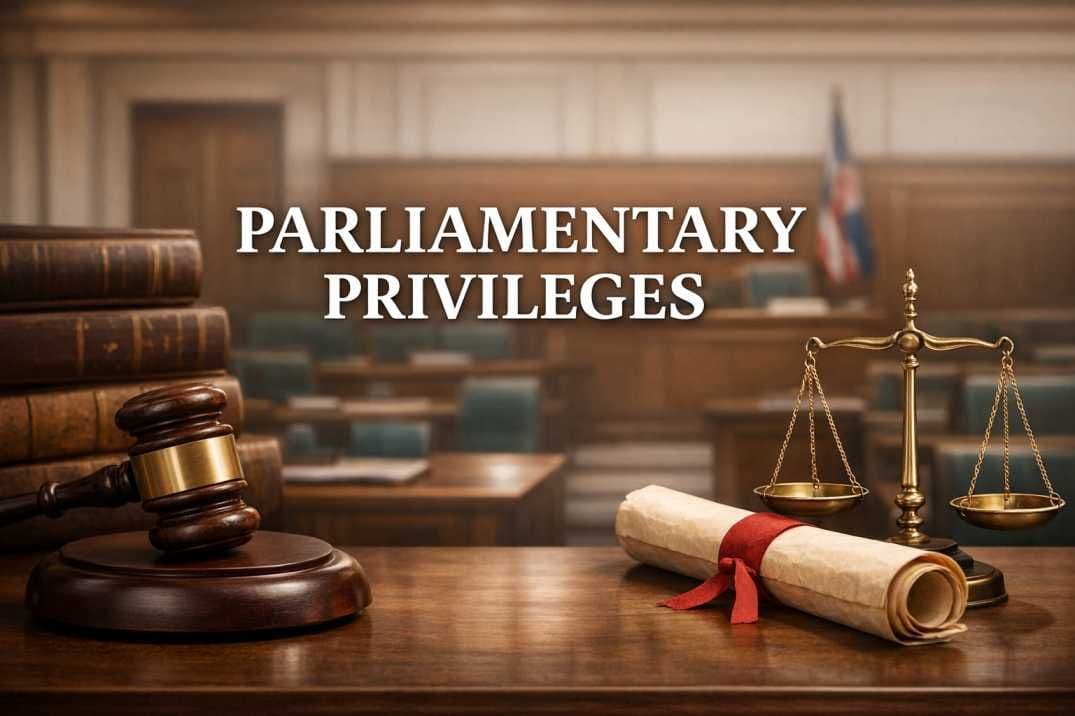Constitutional Bodies in India
Oct, 2025
•4 min read
Constitutional Bodies in India for UPSC are an important part of both Prelims and Mains (GS Paper 2 – Polity and Governance). Questions often appear on their composition, powers, functions, and role in strengthening democracy.
Here, we’ll cover everything you need to know about Constitutional Bodies for UPSC from the syllabus perspective.
What are Constitutional Bodies?
Constitutional Bodies are institutions that are created directly by the Constitution of India. Their powers, structure, functions, and responsibilities are clearly defined in the Constitution itself. These bodies play a vital role in upholding the principles of democracy, maintaining checks and balances, and ensuring smooth governance as envisioned by the framers of the Constitution.
Key Facts
- Created by the Constitution of India, not by ordinary laws.
- Powers, functions, and composition are explicitly defined in the Constitution.
- Designed to strengthen checks and balances across the executive, legislature, and judiciary.
- Ensure the smooth functioning of democracy and uphold the rights of citizens.
List of Constitutional Bodies of India
Constitutional Bodies are key institutions that ensure fair governance and uphold the Constitution. They function independently to maintain transparency, accountability, and democratic balance. Here’s a list of the important Constitutional Bodies you must study for the UPSC exam.
1. Election Commission of India (ECI)
The Election Commission of India oversees free and fair elections across the country.
- Constitutional Provision: Article 324
- Composition: Chief Election Commissioner and two Election Commissioners
- Appointment: President of India on the panel recommendation.
- Tenure: Six years or until age 65
- Removal: By the President using the Supreme Court judge removal procedure for CEC; other ECs on CEC’s recommendation.
- Functions: Conducts and supervises elections to Parliament, state legislatures, the President, and the Vice-President.
Also read: 2nd ARC Report UPSC Mains: Key Recommendations & Summary
2. Union Public Service Commission (UPSC)
The UPSC recruits candidates for the nation’s top civil services and central posts.
- Constitutional Provisions: Articles 315–323
- Composition: Chairman and members as determined by the President
- Appointment: President of India
- Tenure: Six years or until age 65
- Removal: By the President on the Supreme Court’s recommendation for misbehavior.
- Functions: Conducts examinations for recruitment into the All-India Services and central services.
3. State Public Service Commission (SPSC)
Each SPSC selects officers for the state civil services and posts.
- Constitutional Provisions: Articles 315–323
- Composition: Chairman and members as determined by the Governor
- Appointment: Governor of the state
- Tenure: Six years or until age 62
- Removal: By the President on the Supreme Court’s recommendation for misbehavior
- Functions: Conducts examinations for state-level civil services and advises on service matters
Also read: Article 370 of the Indian Constitution: 6 Years After Abrogation
4. Finance Commission of India (FCI)
The Finance Commission recommends fair distribution of fiscal resources between the Center and the states.
- Constitutional Provision: Article 280
- Composition: Chairman and four members
- Appointment: President of India
- Term: As specified by the President
Functions:
- Recommend the distribution of tax revenues between the Center and the states.
- Advice on grants-in-aid to states.
- Suggest measures to strengthen local bodies’ finances.
5. Goods and Services Tax Council (GST Council)
The GST Council guides tax policy and implementation under the GST regime.
- Constitutional Provision: Article 279A (101st Amendment, 2016).
- Composition: Union Finance Minister (Chair), Union Minister of State for Revenue, and state finance ministers.
Functions:
- Recommend GST rates and exemptions.
- Propose model GST laws and rules.
- Advice on inter-state supply tax apportionment.
6. National Commission for Scheduled Castes (NCSC)
The NCSC protects and promotes the interests of the Scheduled Castes.
- Constitutional Provision: Article 338
- Composition: Chairperson, Vice-Chairperson, and three members
- Appointment: President of India
- Tenure: Three years
Functions:
- Monitor safeguards provided to SCs
- Investigate complaints of deprivation of rights
- Advice on socio-economic development policies
Also read: Top 15 Important Constitutional Amendments for UPSC Prelims
7. National Commission for Scheduled Tribes (NCST)
The NCST champions the welfare of Scheduled Tribes across India.
- Constitutional Provision: Article 338A
- Composition: Chairperson, Vice-Chairperson, and three members
- Appointment: President of India
- Tenure: Three years
Functions:
- Monitor implementation of tribal welfare measures.
- Enquire into complaints and safeguard tribal rights.
- Recommend policy improvements.
8. National Commission for Backward Classes (NCBC)
The NCBC safeguards the interests of socially and educationally backward classes.
- Constitutional Provision: Article 338B (102nd Amendment, 2018)
- Composition: Chairperson, Vice-Chairperson, and three members
- Appointment: President of India
- Tenure: Three years
Functions:
- Examine requests for inclusion in the OBC list.
- Monitor safeguards for OBCs.
- Advice on welfare measures and policy.
Multiple Choice Questions
QUESTION 1
Easy
Indian Polity
Consider the following statements: [UPSC 2020]
1.The Election Commission of India is a five-member body.
2.Union Ministry of Home Affairs decides the election schedule for the conduct of both general elections and bye-elections.
3.Election Commission resolves the disputes relating to splits/mergers of recognized political parties.
Which of the statements given above is/are correct?
Select an option to attempt
9. Special Officer for Linguistic Minorities (CLM)
The CLM ensures constitutional safeguards for India’s linguistic minorities.
- Constitutional Provision: Article 350B
- Composition: One Commissioner
- Appointment: President of India
- Headquarters: New Delhi, with regional offices in Belgaum, Chennai, and Kolkata
Functions:
- Review the implementation of minority language protections.
- Report annually to the President.
- Recommend measures to improve minority language rights.
10. Comptroller and Auditor General of India (CAG)
The CAG audits government accounts to promote transparency and accountability.
- Constitutional Provisions: Articles 148–151
- Appointment: President of India
- Tenure: Six years or until age 65
- Removal: Same grounds and process as a Supreme Court judge.
Functions:
- Audit receipts and expenditures of the Union and the states.
- Audit government-funded bodies.
- Submit audit reports to Parliament and state legislatures.
11. Attorney General of India (AGI)
The AGI serves as the chief legal advisor to the Union Government.
- Constitutional Provisions: Articles 76, 88, 105
- Appointment: President of India
- Term: No fixed tenure
Functions:
- Advise the Union Government on legal matters.
- Represent the government in the Supreme Court and high courts.
- Perform duties assigned by the President.
12. Advocate General of the State (AGS)
The AGS is the principal legal advisor to a state government.
- Constitutional Provisions: Articles 165, 177, 194
- Appointment: Governor of the state
- Term: No fixed tenure
Functions:
- Advise the state government on legal issues.
- Represent the state in courts.
- Perform duties assigned by the Governor.
UPSC Mains Practice Question
Discuss the role of the National Commission for Backward Classes in the wake of its transformation from a statutory body to a constitutional body.
Evaluate Your Answer Now!Importance of Constitutional Bodies in India
Constitutional bodies uphold democratic principles, maintain checks and balances, and safeguard citizens’ rights.
- Enforce constitutional mandates and protect the rule of law.
- Ensure free and fair elections, transparent finances, and legal oversight.
- Promote social justice by protecting minorities and weaker sections.
- Facilitate efficient governance through independent and impartial institutions.
- Strengthen public confidence in democratic processes.
Difference between Constitutional and Non-Constitutional Bodies
Constitutional and non-constitutional bodies form the foundation of India's governance structure, each serving distinct roles in ensuring democratic functioning and administrative efficiency.
| Constitutional Bodies | Non-Constitutional Bodies |
|---|---|
| Derive powers directly from the Constitution of India. | Created by Acts of Parliament, state legislatures, or executive orders. |
| Explicitly mentioned in specific articles of the Constitution. | Not mentioned in the Constitution. |
| Changes require a constitutional amendment. | Can be modified or abolished through ordinary legislation or executive action. |
| High degree of independence with constitutional protection. | May face greater political interference. |
| Permanent constitutional status. | It can be dissolved, modified, or restructured more easily. |
| Accountable to the Constitution and indirectly to the people. | Responsible to the government and Parliament. |
| Election Commission of India, UPSC, CAG, Finance Commission, NCSC, NCST, NCBC. | NHRC, NITI Aayog, CVC, CIC, National Green Tribunal. |
| Members have fixed tenures with a rigorous removal process. | Members may have less secure tenures |
| Handle core governance functions like elections, audits, and recruitment. | Address specific issues like human rights, corruption, and environmental protection. |
Way Forward
The future of Constitutional Bodies in India calls for focused reforms to strengthen them and enhance their effectiveness in serving the people.
- Enhance Independence: Limit political influence over appointments and decisions.
- Embrace Technology: Use digital tools for transparency and efficiency.
- Boost Accountability: Set clear reporting and review mechanisms.
- Increase Resources: Allocate sufficient funds, staff, and infrastructure.
- Periodic Reviews: Regularly assess performance and identify areas for improvement.
Elevate your UPSC prep with SuperKalam:
- Unlimited practice with high-quality MCQs and PYQs.
- Lightning-fast Mains answer evaluation with personalized feedback.
- Comprehensive daily news updates.
Seamless learning experience on both web and mobile, download now: SuperKalam Crack UPSC IAS


